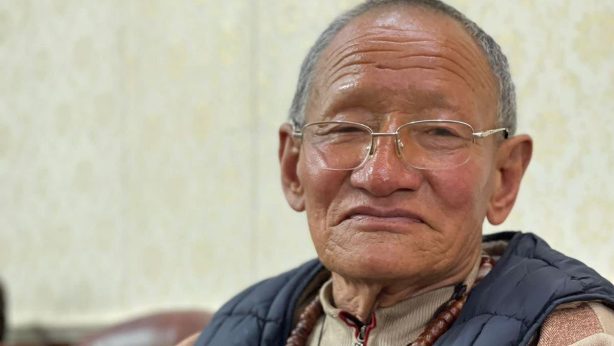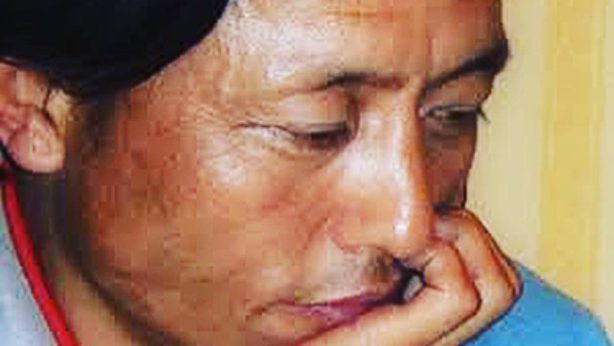Roar of the Snow Lion: Tibetan writer Tashi Rabten released after 4 years in prison

Tibetan Centre for Human Rights and Democracy (TCHRD) welcomes the release of writer Tashi Rabten, also known as Theurang, who served four years at Mianyang Prison in Sichuan Province. He was sentenced on charges of “inciting activities to split the nation” by the Ngaba (Ch: Aba) Intermediate People’s Court on 2 June 2011.
Tashi Rabten was a student at the Northwest Nationalities University in Lanzhou, Gansu Province. He went missing on 26 July 2009, when the university closed for summer vacation. His whereabouts remained unknown until 6 April 2010 when he was traced to a detention center in Ngaba’s Barkham County.
The sentencing of Tashi Rabten violated, among others, article 19 of the United Nation’s International Covenant on Civil and Political Rights (ICCPR), which calls for the protection of freedom of expression. China signed the ICCPR in 1998 and since then it has dragged its feet on ratifying the covenant despite numerous recommendations from UN member states during China’s first and second Universal Periodic Review in 2009 and 2013 respectively.
Tashi Rabten was released Saturday, 29 March 2014 – to a warm and rousing welcome from his family members, relatives, friends and admirers.
Tashi Rabten’s ‘crime’ for which he was sentenced to four years in prison was serving as one of the editors of the literary journal Shar Dung Ri (Eastern Snow Mountain) and penning a book titled Trag Yig (Written in Blood).
Both the journal and the book, now banned in Tibet, featured poems and essays condemning the Chinese government’s brutal suppression of the 2008 Tibetan protests and destruction of Tibetan culture and environment in the name of development and stability.
In an editorial published in the Shar Dung Ri journal, Tashi Rabten and his fellow writers condemned China’s state-sponsored violence on peaceful Tibetan protestors in 2008 in the following words:
In a year that turned out like a raging storm, in which every activity, coming, staying and going, and when the mountains, rivers and forests and all that is alive therein came under an iron net, with gun barrels trained upon them…
Opposing the Chinese government’s development policies in Tibet that in reality treat Tibetan culture and people as ‘museum pieces’, Tashi Rabten in an essay titled ‘They treat us like animals’ wrote:
Why do tourists point their cameras on the faces of elderly Tibetans and take their pictures? Do these tourists have a sense of ethics and morality? The fact that they keep taking pictures of our people, mountains and villages – despite knowing that such actions are unethical, immoral and illegal – clearly shows what kind of status our people enjoy. They treat us like animals lacking the ability of speech. They treat us as a race of ignorant barbarians.
His writing also gave powerful expression to the Tibetan people’s yearning for human rights, freedom and democracy. In another essay titled ‘Fighting for universal human rights is an act of seeking truth‘, he wrote:
Since 2008, Tibetans inside and outside Tibet have pursued many campaigns such as protests, fasts, peaceful marches and other commemorative events. These non-violent campaigns reflect the agonising thirst of the Tibetan people for freedom and democracy. They expose the political system and policies of the People’s Republic of China under which we are living.
Today Tashi Rabten has emerged as one of the foremost public intellectuals in contemporary Tibet. His courageous, conscientious acts of exposing Chinese government’s lies and repression in Tibet, for which he suffered torture and imprisonment, and his vision for Tibetan freedom, are widely admired by the younger generation of Tibetans.
What is so astonishing about Tashi Rabten is his commitment to the ideals of non-violent resistance. Respecting the sacredness of every human life no matter which nationality, caste, or creed, Tashi Rabten took the brave but unpopular position of publicly condemning some of the unfortunate incidents of violence witnessed in 2008:
Any nation or people aspiring for democracy must respect the life of every individual citizen without any discrimination. Amid our non-violent struggle, however, we witnessed ‘some ugly incidents of looting, burning, smashing and killing.’ Such incidents violate human rights and sacredness of human lives and thus pollute, and are a blot on, the non-violent struggle of our people.
Tashi Rabten’s vision for Tibetan freedom can be summarised in his powerful poem titled ‘Raise the warrior’s sword, my fellow Tibetans.’ In this poem, Tashi Rabten expressed his conviction in the just struggle of the Tibetan people. He writes that just as United States of America had moral and legal right to overthrow British colonialism, India to drive out British invaders and black South Africans to free themselves from the yoke of a white apartheid regime, Tibet and the Tibetan people too should have the moral and legal right to free themselves from what he believes to be a foreign occupation. The poem demands:
Two heavy words are asking a question
They demand an immediate answer
Like the US Declaration of Independence
The Hind Swaraj of India
The end of apartheid in South Africa.
While expressing joy at the release of Tashi Rabten, Tibetan Centre for Human Rights and Democracy remains deeply concerned about the fate of other Tibetan writers such as Gartse Jigme and Kunchok Tsephel Gopeytsang, who are currently serving harsh prison sentences merely for exercising their right to freedom of opinion and expression. The Centre calls upon the Chinese government to immediately and unconditionally release all prisoners’ of conscience. The Centre urges the Chinese government to ratify the ICCPR as soon as possible and respect the rights of all to express themselves without fear of retribution.
For more on arrest and imprisonment of Tibetan writers, intellectuals and artists, click here to read a joint report released by TCHRD and Voice of Tibet radio service in December 2013


